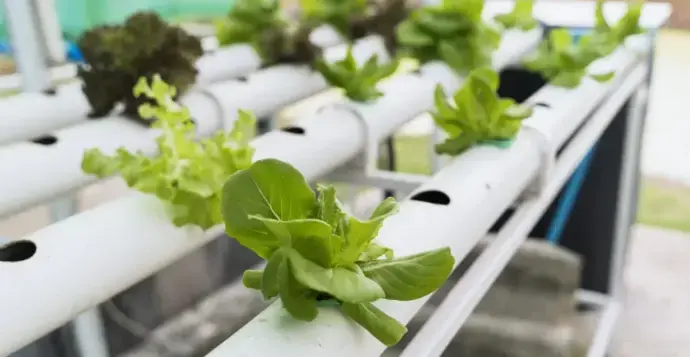What Is Intercropping?
Intercropping (also known as companion planting or mixed cropping) is an agricultural technique that involves growing two or more different plant species at the same time and in the same space. Unlike monoculture, this strategy aims to create synergy between crops, optimizing the use of resources such as light, water, nutrients, and space.
Although traditionally applied in soil agriculture, intercropping is now being adapted to modern systems like hydroponics, opening new possibilities for growers focused on efficiency and sustainability.
Benefits of Intercropping
When applied correctly, intercropping offers many advantages:
✅ Better space utilization
✅ Reduced pests and diseases
✅ Greater diversity in harvest
✅ Nutritional balance in the substrate/nutrient solution
✅ Higher productivity per square meter
✅ Improved light management and microclimate
Classic Examples of Intercropping
In traditional agriculture, some well-known combinations include:
Corn + beans
Lettuce + carrots
Basil + tomato
Arugula + green onions
Each combination has its logic: a fast-growing plant paired with a longer-cycle one, or a nitrogen-fixing plant with one that requires more nitrogen.
And in Hydroponics? Can You Apply Intercropping?
Yes, absolutely! Although hydroponics is a more controlled system, the technique can be perfectly adapted. Key points include:
1. Compatibility of Needs
Choose crops with similar requirements for:
pH
Electrical conductivity (EC)
Temperature
Light
2. Growth Rate
Combine fast-growing plants (like arugula or cilantro) with longer-cycle crops (like bell peppers or cherry tomatoes) to harvest in stages and make the most of your space.
3. System Types
NFT systems, deep water culture (DWC), or inert substrate with drip irrigation are best suited for intercropping, as they allow uniform nutrient solution control and easy adjustment of variables.
Suggested Combinations for Hydroponics
Some combinations that work well in hydroponic systems:
Basil + cherry tomato
Cilantro + butterhead lettuce
Spinach + celery
Parsley + arugula
Pak choi + green onions
These combinations not only look great in trays or vertical modules but also increase biodiversity, helping prevent pests and maintain a balanced ecosystem.
Technical Considerations
💧 Nutrient Solution
Ensure that the crops can share the same formulation, or use separate systems if specific adjustments are needed.
🌱 Planting Density
Avoid overloading the system: respecting each plant’s space is essential to prevent negative competition.
🕒 Planting Schedule
Proper planning allows you to use empty spaces while one crop finishes its cycle.
Benefits for Your Hydroponic Production
Higher profitability: more kilograms per square meter and a wider variety of products
Reduced risk: if one crop fails, another can compensate
Higher added value: offer fresh leaf mixes, gourmet combos, or complementary crops for chefs
Real sustainability: more production with fewer resources
A more natural model within a controlled system
Intercropping in hydroponics breaks the logic of monoculture without sacrificing the control and precision that define this method. It mimics nature using cutting-edge technology, a perfect fusion of the ancient and the modern.
In summary: Why consider intercropping in your system?
It increases productivity without expanding your area
It diversifies your offerings and strengthens your business
It’s an intelligent, eco-friendly way to produce more with less
At ToDo Hydro, we support growers who innovate and do things right
🌱 Want to try this technique?
At ToDo Hydro, we help you plan crop combinations, adjust nutrients, and create a flexible system to apply intercropping in your trays or channels.
Let’s grow more than just plants: let’s grow knowledge, efficiency, and the future!
We hope you found this useful!
Would you like to suggest the next article? Leave a comment!
See you next time!


